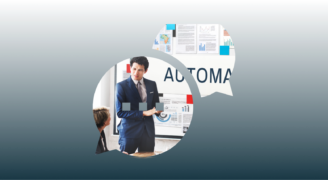Having an Enterprise Resource Planning (ERP) system is a must-have for every business operation. But more than that, it's important to select the best ERP that fits your business needs. Even though there are a large number of ERP systems available that can make your processes simpler, making the wrong choice can make things complex. ERP connects all key operations—finance, supply chain, HR, sales, and more. With so many options available, picking the right one can feel tricky. Here are some tips to keep in mind before implementing an ERP system.
1. Assess Your Business Needs
The first step in selecting the right ERP is understanding what your business truly needs. ERP systems offer a wide range of features, but not all of them may be necessary for your company. For instance, if you're a small business, you might not need advanced HR management or extensive project management features. Focus on the core functions that directly impact your operations, like financial management, inventory control, or customer relationship management (CRM).
2. Evaluate Your Current Systems
Before jumping into new software, take a good look at your current systems and processes. Are there pain points in your current way of working? Is there an inefficient or outdated process that needs improvement? Knowing where your existing systems fall short will help you pinpoint which areas you need the ERP to improve. For example, if manual inventory tracking is causing stock discrepancies, you will want an ERP with strong inventory management capabilities.
3. Scalability and Flexibility
Your business will grow, and your ERP system should grow with it. Choose an ERP solution that is flexible and scalable. As your business expands, your ERP should be able to handle higher volumes of transactions, more users, and more complex operations. Look for a solution that allows you to add new features or modules as needed, without requiring a complete replacement of the system.
4. User-Friendliness and Training
A user-friendly ERP is crucial for employee adoption and overall productivity. If your staff finds the system difficult to navigate, they may resist using it, which defeats the purpose of having an ERP in the first place. During your selection process, consider the user interface and ease of use. A clean, intuitive design can make the transition smoother and reduce the time spent on training. Also, make sure the ERP provider offers training materials and customer support.
5. Integration Capabilities
The best ERP systems integrate well with other software applications you are currently using, like CRM systems, eCommerce platforms, or third-party analytics tools. Seamless integration can help centralize your data and provide a single source of truth for decision-making. Be sure to check whether the ERP supports integration with your existing tools and whether custom integrations are possible if needed.
6. Cloud vs. On-Premises
One of the most critical decisions is whether you should go with a cloud-based or on-premise ERP solution. Cloud-based ERPs are typically easier to implement, with lower upfront costs, fewer IT demands, and remote accessibility. On the other hand, on-premises ERPs offer more control over your data and infrastructure but come with higher initial investment and ongoing maintenance costs. Consider your business's budget, size, and IT capabilities when making this decision.
7. Cost of Ownership
ERP systems can be a significant investment. While evaluating different options, it’s essential to look beyond the initial cost of the software. Consider the total cost of ownership, which includes not only the software license or subscription fee but also implementation costs, training expenses, ongoing maintenance, and upgrades. Keep in mind that while the cheapest option might seem attractive upfront, it could end up being more expensive in the long run if it doesn’t fully meet your business needs.
8. Customer Support and Vendor Reputation
Good customer support is essential to ensure your ERP system runs smoothly. Before making your final decision, research the vendor’s reputation for customer service. Do they offer 24/7 support? Are there readily available resources for troubleshooting and problem-solving? Look for reviews, case studies, or testimonials from other businesses to gauge the quality of support you can expect.
9. Customization and Configuration
No two businesses are exactly alike, and the same goes for ERP needs. While out-of-the-box ERP solutions may cover most standard operations, you may need a certain level of customization to match your specific business processes. Check whether the ERP provider offers options for customization or whether you’ll need third-party help to tailor the system to your needs. Keep in mind that too much customization can lead to higher implementation costs and longer deployment times.
10. Security and Compliance
The security of your business data should be a top priority. Make sure the ERP system you choose complies with industry standards and regulations related to data security. Cloud-based ERP providers should offer robust security features such as encryption, multi-factor authentication, and regular updates. For businesses operating in regulated industries, ensure that the ERP system can help you meet compliance requirements.
Why Choose NetSuite ERP?
Now that you have a clear understanding of how to choose the best ERP system, let’s take a closer look at one of the leading ERP solutions on the market—NetSuite.
NetSuite is a cloud-based ERP that has helped businesses of all sizes manage their operations more efficiently. Here are some of the key features that set NetSuite apart:
• Comprehensive Functionality: NetSuite offers an all-in-one solution that covers financial management, order management, CRM, inventory management, and more. This helps businesses streamline operations and ensures that all departments work off a single platform.
• Scalability: As your business grows, NetSuite grows with you. Its cloud-based platform is highly scalable, allowing you to add new functionalities and scale without significant upfront investments in infrastructure.
• Real-Time Data Access: NetSuite provides real-time data and insights, which is essential for making timely business decisions. With up-to-date information, businesses can act quickly to address issues, seize opportunities, and drive growth.
• Global Reach: For businesses operating internationally, NetSuite supports multiple currencies, languages, and tax regulations, making it ideal for companies with global operations.
• Customization: NetSuite’s Suite Cloud platform allows businesses to tailor the software to their specific needs. Whether you require industry-specific features or custom workflows, NetSuite offers the flexibility to make the ERP system work for your business.
• Security and Compliance: NetSuite adheres to the highest security standards and provides robust tools to help businesses remain compliant with regulatory requirements.
Explore our article to know more about ‘NetSuite AI Analytics for Smarter Cost Control’
Wrapping Up
In conclusion, selecting the best ERP system is a crucial decision for any business, and NetSuite offers a reliable, feature-rich solution for companies looking to streamline operations and scale efficiently. By following the tips mentioned above, you can ensure that your business invests in an ERP that meets your current and future needs.
If you need to learn more about NetSuite ERP and explore its full potential, please feel free to contact our experts. We are here to assist you with the process and discuss future enhancement possibilities for your NetSuite account.



